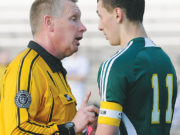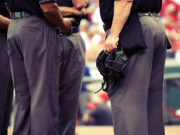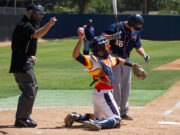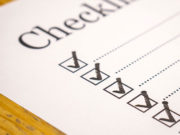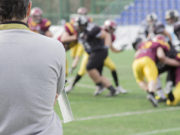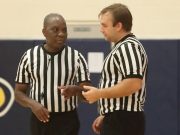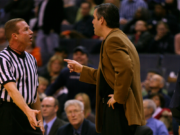Art Of Officiating
Home Art Of Officiating
Covering conflict management, the psychology of officiating, best practices and officiating/life balance.
16 Unwritten Rules Of Officiating
1. When you “think” you saw something, YOU DIDN’T.
There are times you will be focused on action in your coverage area but something on...
6 Things You Never Say to a Coach
You will say all kinds of things when you’re having a conversation, conference, discussion, talk, debate or heated exchange with a coach. But are there some comments that should...
4 Habits of Successful Officials
If you took a poll of coaches and players and asked them to name the skills and habits that are important for a game...
6 Qualities That Get You Respect
In a business environment, you know the people you don’t like to work with. You know the laggards, the braggers and the ones who shove daggers in your...
30 Basics of Officiating
If you've officiated for any length of time, you’ve probably heard most of these basics of our avocation before, but they bear repeating and...
Dealing with Obnoxious Fans
Between the lines, sports officials have every right and can take immediate action to eject a player or coach from a game for unruly...
Why Coaches Yell
Referees frequently talk about how much coaches yell at them. We’d all like to have them yell less. Yelling at referees rarely improves performance. In fact,...
4 Tips for Talking to Coaches
Talking to coaches is not an exact science; they are as different as anyone else you would encounter in another forum. What works with...
5 Ways to Manage Conflict
When situations explode on the field or court, it's up to sports officials to restore the peace and manage conflict. In managing conflict, showing a little empathy, demonstrating good listening skills and providing people with options rather than...
48 Timeless Tips
The following "Timeless Tips" were originally targeted at first-year officials, but we believe all officials can benefit from these nuggets of wisdom. Enjoy.
You learn...
How to NOT Argue
It takes a minimum of two people to have an argument. If one person chooses not to participate, that leaves the second party blustering...
6 Common Errors and How to Avoid Them
It seems no matter how long a person has been officiating, and regardless of the sports he or she works, any official can fall...
13 Immutable Laws of Officiating
There is no sense in building an architectural masterpiece on a sand dune. The view might be great but it will be short-lived and very expensive. It might be part of our...
When a No-Call is the Best Call
The absence of an official’s whistle has its own characteristic sound — that of continued action. That silence is thought to bring an official further along the line...
What’s Acceptable Contact Between Officials & Participants?
The issue of the propriety of any two human beings touching one another runs the gamut of the human condition; from liberal to conservative, man to woman, western to eastern....
When Do Comments Go From Noise to Unprofessional Conduct?
Comments from head coaches, their coaching staffs, team supporters and fans can vary and deserve a multitude of responses. But when the comments go...
An Effective Way To End The Argument
It is human nature to argue. When someone challenges your authority, your opinion or your knowledge, it’s normal that your first reaction is to...
Does Appearance Still Matter If You Get the Calls Right?
Beards and tattoos have become much more prevalent and accepted in today’s society than in years past. You see them on everyone from CEOs...
4 Elements of Decisiveness
In the business world, money can be made or lost based, in
large measure, on the decisiveness of the executives. In battle, the
decisiveness of the...
Become Unflappable with Emotional Control
When people say, “There’s no need to get emotional,” that’s probably more true for officials than for the average person. Put a regular guy...
How To Move on From a Mistake
OK, you blew a call. What are you going to do now?
1. Mope.
2. Think about it for a while.
3. Forget about it and move...
7 Steps To Better Conversations
Dealing with adversarial relationships can be tough. These seven tips to better conversations will make your difficult job a bit easier.
1. Pause before responding
Let the other person get...
Self-Evaluation is Critical
Having both the ability and willingness to self-evaluate is
critical to becoming a better referee. Whether you do youth, school or amateur games, you must...
Body Language Speaks Volumes
When people hear the word “communication,” they think of how one person speaks to another. A sometimes overlooked yet critically important method is body language. In many ways, an official’s...

